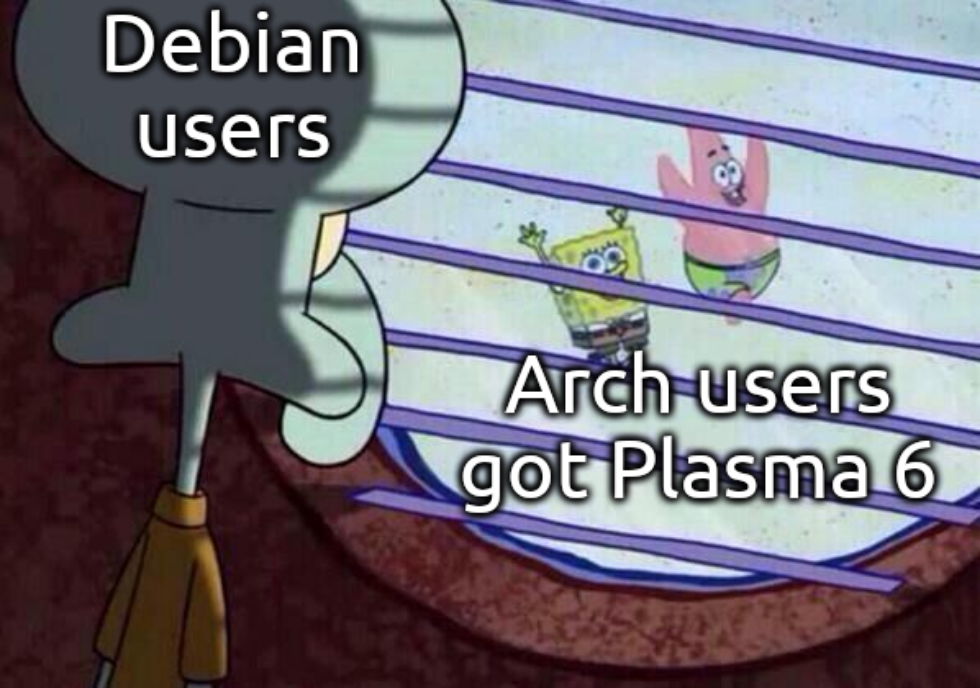this post was submitted on 07 Mar 2024
692 points (98.1% liked)
linuxmemes
20762 readers
1861 users here now
I use Arch btw
Sister communities:
- LemmyMemes: Memes
- LemmyShitpost: Anything and everything goes.
- RISA: Star Trek memes and shitposts
Community rules
- Follow the site-wide rules and code of conduct
- Be civil
- Post Linux-related content
- No recent reposts
Please report posts and comments that break these rules!
founded 1 year ago
MODERATORS
you are viewing a single comment's thread
view the rest of the comments
view the rest of the comments

There is a fine line between stable and outdated. Some debian pakages are like 2 years out of date. I just cant handle that on a desktop.
2 years out of date is usually fine for me. When it isn't, I haven't had a problem using the Flatpak or a .deb directly from whoever released the software.
Flatpak, nix, guix, snap, appimage, distrobox, etc. You most certainly can handle that.
On my system half of the packages come from Debian repositories, and half from nix unstable.
So don't run stable on a desktop? If you want a bleeding edge rolling release, that's what sid is for.
Dont you think there is a healthy line between booth? I would not whant anyone using old ass versions with old ass bugs. Its also bad for new users, who expect software to be remotly up to date.
For the target users of Debian stable? No.
Debian stable is for servers or other applications where security and predictability are paramount. For that application I absolutely do not want a lot package churn. Quite the opposite.
Meanwhile Sid provides a rolling release experience that in practice is every bit as stable as any other rolling release distro.
And if I have something running stable and I really need to pull in the latest of something, I can always mix and match.
What makes Debian unique is that it offers a spectrum of options for different use cases and then lets me choose.
If you don't want that, fine, don't use Debian. But for a lot of us, we choose Debian because of how it's managed, not in spite of it.